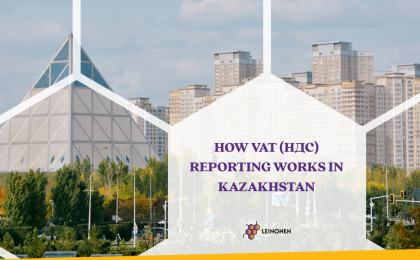Understanding the employment and labor laws in Kazakhstan is essential for both employers and employees. This article provides a basic overview of some aspects of employment and labor law in Kazakhstan, outlining key regulations, rights, and obligations.
- Employment Contracts: In Kazakhstan, employment relationships are primarily governed by the Labor Code. To establish a legal employment relationship, an employer must issue a written employment contract that includes essential details such as job description, working hours, compensation, and probationary periods. Contracts can be fixed-term or indefinite, with the latter being the default unless otherwise specified.
- Working Hours and Leave Entitlements: The standard working week in Kazakhstan is 40 hours, typically distributed over five or six days. Employees are entitled to a minimum of 24 days of annual leave, which increases based on their years of service. Additionally, employees are entitled to paid sick leave and maternity leave as provided by the law.
- Minimum Wage and Remuneration: Kazakhstan has a set minimum wage, which is reviewed and adjusted periodically by the government. Employers must ensure that their employees receive at least the minimum wage for their work. Wages can be paid on a monthly, or twice-monthly basis, and the payment must be made in the local currency.
- Termination and Severance: The termination of employment in Kazakhstan can occur through resignation, mutual agreement, or dismissal. Dismissal can be initiated by either the employer or employee, subject to specific grounds and procedures outlined in the Labor Code. Severance pay is generally not required, except in cases of redundancy or other specific circumstances, as stipulated by law.
- Workplace Safety and Health: Employers in Kazakhstan have an obligation to provide a safe and healthy work environment for their employees. They must comply with relevant health and safety regulations, implement safety measures, and provide necessary training. These measures must be properly documented. Employees also have the right to refuse work if they believe it poses a serious threat to their safety.
Understanding the fundamental aspects of employment and labor law in Kazakhstan is crucial for employers and employees alike. Unfortunately, in the local business environment, it is common that both parties are poorly informed of their rights and obligations. Often this leads to violations of employees´ rights and sometimes to conflict situations that have to be resolved in court. Employers should consider that the justice system is protective of the employees, and the burden to show evidence of compliance to labor laws factually rests on the employer. By adhering to the legal framework, businesses can create a conducive environment for growth and productivity while safeguarding the welfare of their workforce.
Make sure, that your company adheres to the employment and labor laws in Kazakhstan. With Leinonen’s legal team on your side, you can be sure, that all processes are being handled correctly.




